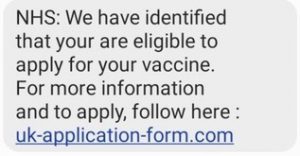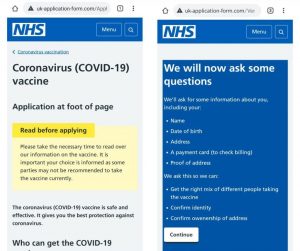Date Note / Information Sent | Notes & Information |
|---|---|
| 09 Jan 2023 | Crime Prevention 'Contact us' guideWhen you need to contact the police, it can often be a distressing time, and with a range of different contact methods available to you, it might not be clear which one you should choose. This is why we want to educate our community about contacting us. It is important that our residents understand when to call us, when it's better to go online, and when you should contact a different authority altogether. We have put together a 'Contact us' guide, which can be accessed any time via the Constabulary's website. The guide breaks down each method of contact so you can learn about how and when to use our phone lines and online services. Click into each section for further information and advice. We believe that gaining a better understanding of our contact methods (and when to use each one) will ensure that should you require the police, you will know where to turn to receive the appropriate help. Not only that, but we also help that it will alleviate unnecessary pressure on our call handlers, who often receive misplaced / inappropriate calls. |
| 28 Nov 2022 | Online shopping scamsNew figures revealed victims of online shopping scams lost on average £1,000 per person during last year’s festive shopping season. The figures, which come from reports made to Action Fraud and analysed by the National Fraud Intelligence Bureau (NFIB), showed that shoppers across England, Wales and Northern Ireland were scammed out of £15.3m between November 2021 and January 2022, and that the age group most likely to fall victim was 19 to 25-year-olds. Scams ranged from one shopper losing more than £150 trying to purchase a mobile phone on social media to another being duped out of more than £7,000 during an attempted online campervan purchase. Meanwhile, another victim lost almost £500 when trying to buy shoes on a social media platform, and a fourth lost £145 trying to make a similar purchase. Top tips to shop online securely this festive season: Action Fraud and the National Cyber Security Centre (NCSC) are urging online shoppers to protect their accounts, check before they buy, and use secure payment methods in order to stay ahead of the threat from criminals this shopping season: • Protect your accounts: set up 2-step verification and use three random words passwords to prevent cyber criminals from gaining access to your shopping, bank or email accounts. • Choose carefully where you shop: Research online retailers, particularly if you haven’t bought from them before, to check they’re legitimate. Read feedback from people or organisations that you trust, such as consumer websites. • Pay securely: Use a credit card when shopping online, if you have one. Most major credit card providers protect online purchases and are obliged to refund you in certain circumstances. Using a credit card (rather than a debit card) also means that if your payment details are stolen, your main bank account won’t be directly affected. Also consider using a payment platform, such as PayPal, Google or Apple Pay. And whenever you pay, look for the closed padlock in the web address bar – it means your connection is secure. |
| 04 Aug 2022 | |
| 06 Jul 2022 | #saferCambsWarning following rise in motorbike theftsA warning to all residents to secure their bikes following a rise in motorbike thefts across the county. Unsecure motorcycles, scooters and mopeds are being targeted by thieves as they are lightweight and can be wheeled away easily. Since the beginning of June (to 5 July) there has been 63 reported thefts across the county. Cambridge - 38 East Cambs - 1 Fenland - 5 Huntingdon - 1 Peterborough - 14 South Cambs - 4 We’re seeing an increase in mopeds, scooters and motorbikes of all makes and models being taken from driveways, car parks and public places by simply being wheeled away. Thieves only need a matter of seconds to steal a moped, scooter or motorcycle, especially if they are left with poor security. We’re asking people to ‘lock, chain and cover’.  |
| 06 Jul 2022 | #saferCambsJuly edition, is here.....July newsletter is out. READ IT HERE It's Because |
| 07 Apr 2022 | Over 20K People Fell Victim To Remote Access ScamsMore than £50 million was lost last year to scams where victims are tricked into handing over control of their computer or smartphone to criminals. New data from Action Fraud, the national reporting centre for fraud and cybercrime, reveals that 20,144 people fell victim to scams where they were persuaded to grant criminals remote access to their device. Victims reported losing a total of £57,790,384 – an average loss of £2,868 per victim. What are remote access scams Remote Access scams will often begin with a browser pop-up saying that your computer is infected with a virus, or maybe a call from someone claiming to be from your bank saying that they need to connect to your computer in order to cancel a fraudulent transaction on your account. Regardless of the narrative the fraudster’s use, their goal is to steal your money or access your financial information by tricking you into allowing them to remotely connect to your computer. City of London Police, said: "While remote access tools are safe when used legitimately, we want the public to be aware that they can be misused by criminals to perpetrate fraud. We often see criminals posing as legitimate businesses in order to trick people into handing over control of their computer or smartphone. “You should only install software or grant remote access to your computer if you’re asked by someone you know and trust, such as a friend or family member, and never as a result of an unsolicited call, browser pop-up or text message.” How to protect yourself • Only install software or grant remote access to your computer if you’re asked by someone you know and trust, such as a friend or family member, and never as a result of an unsolicited call, browser pop up, or text message. • Remember, a bank or service provider will never contact you out of the blue requesting remote access to your device. • If you believe your laptop, PC, tablet or phone has been infected with a virus or some other type of malware, follow the NCSC’s guidance on recovering an infected device. • Protect your money by contacting your bank immediately on a different device from the one the scammer contacted you on. • Report it to Action Fraud on 0300 123 2040 |
| 12 Jan 2022 | Newsletter For All Neighbourhood Watch SupportersHappy New Year, and welcome to our first newsletter of 2022 for Neighbourhood Watch supporters across England and Wales! This year, we are thrilled to be celebrating 40 years since the first Neighbourhood Watch group was formed in the UK in Cheshire in 1982. To kick-start our celebrations, we have proudly launched a special-edition 40th anniversary logo, which you can choose to use from now and throughout 2022 as you wish. We will be sharing more ways to celebrate our special anniversary throughout the year – for now, save the date for NEIGHBOURHOOD WATCH WEEK 2022 from 30th May - 5th June. You may notice this falls on the same weekend as the Queens Platinum Jubilee Bank Holiday weekend and The Big Lunch – which presents a fantastic opportunity to host a street party and connect with your neighbours. To download our anniversary logo, find top tips on how to organise a street party, or see how you can play your part in tackling terrorism, read our newsletter here |
| 22 Dec 2021 | Do You Know Where To Report Scam Messages?Fake emails and text messages are a common tactic used by cyber criminals, their goal is often to convince you to click a link. Once clicked, you may be sent to a dodgy website which could download viruses onto your computer, or steal your passwords and personal information. In order to try and convince you that their messages are legitimate, criminals will pretend to be someone you trust, or from some organisation you trust. This could be your Internet Service Provider (ISP), local council, even a friend in need. And they may contact you by phone call, email or text message. Reporting suspicious emails: If you have received an email which you’re not quite sure about, you can report it by forwarding the email to the Suspicious Email Reporting Service at: report@phishing.gov.uk As of 31st October 2021, the number of suspicious email reports stands at more than 8,100,000, with the removal of more than 67,000 scams and 124,000 URLs. Thank you for your continued support. *In a small number of cases, an email may not reach our service due to it already being widely recognised by spam detection services. The vast majority of reports do reach our system so please keep reporting any suspicious emails you receive. Reporting suspicious text messages: You can report suspicious text messages to your mobile network provider, for free, by forwarding the text to 7726. If you forward a text, your provider can investigate the origin of the text and take action, if found to be malicious. If 7726 doesn’t work, you can find out how to report a text message by contacting your provider. (On many Android devices and iPhones, pressing and holding on the message bubble should present the option to forward the message) |
| 30 Nov 2021 | Police and Crime Plan For Cambridgeshire and PeterboroughToday sees the launch of a new Police and Crime Plan for Cambridgeshire and Peterborough which sets out my policing and crime priorities for the next three years. The Plan has been put together following extensive consultation with local residents, businesses and other organisations working to support criminal justice and community safety. I would like to thank those who took the time to give me their views in my July 2021 public survey. You will see that ‘Putting communities first’ is at the heart of my plan. While people understand that the police have to respond to high harm issues such as child abuse, domestic and serious violence, communities also want to see local issues such as anti-social behaviour, speeding and drug dealing dealt with. We currently have the highest number of police officers we have ever had in our county however the police cannot tackle these issues alone. To download a copy of the Plan, please click here I will work hard with Cambridgeshire Constabulary and other partners to make sure the issues residents and businesses are worried about are dealt with and the above priorities are delivered. My commitment to you - the residents of Cambridgeshire and Peterborough - remains the same as the day I was appointed your Commissioner - to cut crime, help victims and keep people safe. Darryl Preston Police and Crime Commissioner |
| 25 Nov 2021 | Hundreds Fall Victim To Lottery Scams In Just Seven MonthsWhat is lottery fraud? Criminals will contact unsuspecting victims informing them they have won a lottery or prize draw. The victim is then informed that they will need to pay an advance fee in order to receive their winnings. In reality, the winnings are non-existent and it is an attempt to steal the victims money, personal or financial information. Between April and October 2021, Action Fraud received 629 reports of lottery fraud, with 89 per cent of reports mentioning well-known prize draws. Impersonation of People’s Postcode Lottery accounted for almost half (49 per cent) of all reports. Almost three quarters of victims (70 per cent) were aged over 50, with those aged over 65 accounting for 40 per cent of reports. Fraudsters use gift cards as a form of payment as they can be easily redeemed and sold on. The criminals don’t need the physical card to redeem the value as they ask the victims to share the serial code on the back of the card with them. In other instances, victims reported being asked for personal and financial information in order to obtain their alleged winnings. Some victims reported providing their bank details thinking they would be sent a small payment to verify the account. In reality, criminals will use these details to steal the victim’s money. How to protect yourself Stop: Unsolicited offers of large sums of money in return for a small upfront payment should always raise a red flag. Taking a moment to stop and think before parting with your money or information could keep you safe. Challenge: Could it be fake? Remember, you can’t win a prize in a competition you didn’t enter. It’s okay to reject, refuse or ignore any requests. Only criminals will try to rush or panic you. Protect: If you think you’ve been a victim of fraud, contact your bank immediately and report it to Action Fraud online at actionfraud.police.uk or by calling 0300 123 2040. You can find further protection advice around lotteries and competition on the Gambling Commission’s website. |
| 24 Nov 2021 | £15M Lost To Online Shopping Scams Last ChristmasOnline shopping scams cost shoppers £15.4 million over the Christmas period last year. New data from Action Fraud, the national reporting centre for fraud and cyber crime, reveals that 28,049 shoppers were conned out of their money when shopping online over the Christmas period last year – an increase of almost two thirds (61 per cent) when compared to the same period in the previous year. Ahead of Black Friday and Cyber Monday, Action Fraud is warning the public to take extra care when shopping online as reports of online shopping fraud have continued to surge. Here are some simple tips to help you and your family enjoy a secure online shopping experience this festive season. Where to shop Buying from an online store you haven’t used before? Carry out some research first, or ask a friend or family member if they’ve used the site and about their experiences before completing the purchase. Your information Only create an account if necessary or to save you effort if you’re going to use that site a lot in the future. Be cautious if the website asks you for details that are not required for your purchase, such as your mother’s maiden name or the name of your primary school. Payment method When it's time to pay for your items, check there's a 'closed padlock' icon in the browser's address bar. Use a credit card when shopping online, if you have one. Most major credit card providers protect online purchases. Phishing Some of the messages you receive about amazing offers may contain links to fake websites. If you’re unsure about a link, don’t use the it – go separately to the website. Report suspicious emails you receive by forwarding them to: report@phishing.gov.uk. Report suspicious text messages by forwarding them to: 7726. Email accounts: Make sure that your really important accounts (such as your email account or online shopping accounts) are protected by strong passwords that you don't use anywhere else. Need help changing your email account password? You can use these links to find step by step instructions: If things go wrong If you've lost money to an online shopping scam, tell your bank and report it as a crime to Action Fraud |
| 22 Nov 2021 | The Best Way To Keep Hackers Out of Your Online Accounts
What is 2FA? Two-factor authentication (2FA) is a way of strengthening the login security of your online accounts. It's similar to how an ATM works. You need both your debit card (first factor) and your PIN (second factor) to get access your account and withdraw cash. The main objective is better security. If your card is stolen, they still need your PIN. If your PIN is stolen, they still need your card. Enabling 2FA will help to stop hackers from getting into your accounts,
How do I enable 2FA on my accounts? Here are links you can use to enable 2FA on some of the most popular online services and apps: |
| 25 Oct 2021 | Neighbourhood Watch Launches Say No To Asb CampaignNEIGHBOURHOOD WATCH LAUNCHES ‘SAY NO TO ASB’ CAMPAIGN Antisocial behaviour (ASB) incidents have increased over the last three years. Police forces, councils and housing associations are reporting significant spikes in ASB cases – and these are not minor incidents. They are complex and serious cases causing real harm to many people. 45% of people say ASB is a problem where they live, and 56% of those who had either been a victim of or a witness to ASB did not report it to anyone. To help tackle the issue, we are running a campaign encouraging people to SAY NO TO ASB. The campaign will run from the 25th October through to the 21st November on our social channels with key information on recognising, recording, and reporting ASB on our website: ourwatch.org.uk/asb We are running a free online ‘SAY NO TO ASB’ webinar on 15th November at 5pm with the charity ASB Help as part of the campaign. Places are limited. To book your place, visit ourwatch.org.uk/asb HOW TO SUPPORT THE CAMPAIGN• Follow us on Facebook, twitter, instragram and share our posts to your social channels, including WhatsApp community groups, to encourage more people to SAY NO TO ASB • Download our ‘Recognising, Recording and Reporting ASB Guide’ from ourwatch.org.uk/asb to share with your community • Download our 14-day ‘ASB Diary’ from Ourwatch to support you in recognising, recording, and reporting ASB incidents in your area. • To find out more and SAY NO TO ASB, visit Ourwatch. |
| 21 Sep 2021 | A Powerful and Moving Look At The Aftermath of A Fatal CollisionMessage Sent By Corporate Communications (Police,Communications Officer,Cambridgeshire) Fatal collisions are an all-too-common tragedy on the county’s roads. But how are they dealt with by police and what is the impact on those nearest and dearest to the victims? A podcast that answers those questions has received nearly 2,000 listens since it was released as part of our Cambs Cops: Our Stories series in August. It sets the words of experienced road policing officer Mark Dollard alongside those of Claire Danks, whose 22-year-old daughter Lauren was killed in an horrific crash caused by a drink driver in 2016. Mark explains the mental processes that allow him take the emotion and confusion out of what can be devastating scenes, while Claire bravely recollects the moments when she first became aware something wasn’t right. She goes on to speak movingly about the impact of the loss, which felt like someone “dropping a bomb” on her family. And she makes a heartfelt plea to anyone else considering getting behind the wheel while over the limit. Listen to the Podcast here and browse others, including those on domestic abuse, sexual offenders and the dog unit, here |
| 20 Sep 2021 | The Search is on For The Uks Best Neighbour People across the UK are being invited to take part in our annual hunt for the UK’s ‘Neighbour of the Year’ – a nationwide search undertaken in partnership by Co-op Insurance and Neighbourhood Watch. Now in its fourth year, 2021 sees the introduction of a new category: Community of the Year. This award will celebrate the nation’s most outstanding community (could be a street, a sports club, a faith collective, or anything in between, either in person or virtual, such as a WhatsApp, Facebook, or Slack group) and the lengths its members have gone to to support others and make a real difference. To nominate your Neighbour of the Year, Young Neighbour of the Year (for people aged 21 years and under) or Community of the Year, and to find out more about these very special awards please visit coop.co.uk/noty |
| 20 Sep 2021 | Free Cyber Security WorkshopsTips on being cyber secure are being offered in a series of free workshops for businesses, charities and education establishments. Three workshops organised by the Eastern Cyber Resilience Centre (ECRC) will be held in one day next month at the Cresset Centre in Peterborough, running from 9am to 3.30pm on Wednesday, 6 October. The three sessions are split into: • Cyber security for small businesses • Cyber security for charities and community interest companies • Cyber security for education organisations Each session will be tailored to the specific industry and will provide guidance and considerations on resilience if faced with a cyber-attack. There will also be practical tasks on the day. Nigel Sutton, the Cambs Police force’s cyber security officer, and Detective Inspector Fiona Bail will also share advice on the free tools available to businesses, charities and education organisations to identify any cyber-related issues. The topics covered will include: • Why cyber crime is important for every business, even the small ones • Free tools and services available for businesses • Fundamental considerations for cyber resilience • Case study: Peterborough Workspace has an internal vulnerability scan To register your interest in attending the free workshops, visit the ECRC Website |
| 10 Sep 2021 | Cold Caller WarningMessage Sent By Corporate Communications (Police,Communications Officer,Cambridgeshire) We’re warning people to be vigilant after cold callers targeted an elderly and vulnerable woman who then paid more than £1000 for unnecessary work. The woman was called by a ‘home savings’ company offering boiler services, citing better energy efficiency and a £500 saving. She was then quoted a price of £1,200 for a boiler flush, and was visited at her home in Peterborough by men who hit her radiators with hammers and showed her bottles supposedly containing dirty remnants/water from the radiators. The woman was then presented with a card machine and paid the money. As the colder part of the year approaches, please remain wary of similar calls and remember if it sounds too good to be true, it probably is. If you aren't expecting to hear from a salesperson or business, be cautious of your dealings with them. Do not feel pressured into handing over money or bank account details to pay for a product or service that you weren't planning to buy before they called or arrived at your door. For more advice and information on fraud and cold callers, visit the force’s dedicated web pages by clicking here |
| 07 Sep 2021 | Sept Our News - The Neighbourhood Watch National NewsletterWe are delighted to bring you the September OUR NEWS edition – a monthly newsletter for all Neighbourhood Watch supporters across England and Wales. This edition introduces you to our Neighbour of the Year Awards 2021 - open for nominations from 14th September, the no-excuse approach to gas safety, fraud trends, rural crime reporting, discount offers from ERA and Patlock for our readers, and much more. We hope that you will enjoy reading our newsletter and share it with your community. Why not share this newsletter link https://bit.ly/OurNewsSept21 with your street WhatsApp groups, community Facebook groups or neighbourhood email groups to keep your neighbours safer and more connected. NEIGHBOURHOOD WATCH NETWORK, Central Support Team |
| 01 Jul 2021 | What Matters To You When It Comes To Local Policing?What matters to you when it comes to local policing? As your Police and Crime Commissioner, one of my first roles is to produce a Police and Crime Plan which sets policing and crime priorities in Cambridgeshire and Peterborough for the next 3 years. It is important to me that the final plan reflects the concerns, views and lived experiences of local people from across our county. Please take the time to have your say in my short survey. www.cambridgeshire-pcc.gov.uk |
| 16 Jun 2021 | Fraud and Scams AwarenessWant to be in the know about the latest scams and how to avoid falling victim to them? Our partners over at Cambridgeshire and Peterborough Against Scams Partnership (CAPASP) are currently taking part in the annual Citizens Advice-led Scams Awareness campaign, which is taking place over the next two weeks. To find out more, visit: www.cambridgeshire.gov.uk/against-scams As part of the campaign, they are sharing advice and useful resources on social media and planning a number of drop-in crime prevention events with more still to be confirmed. Confirmed events During the next two weeks, we are also reminding the people of Cambridgeshire to be vigilant against fraudsters and always report suspicious activity. For more advice on fraud and scams, visit the Cambs Cops website Thank you, Message Sent By Larissa Chapman (Police, Communications officer, HQ) |
| 16 Jun 2021 | Has The Pandemic Made Us More Or Less Aware of Online Risks?Neighbourhood AlertAlong with our Cyberhood Watch partner, Avast, we have launched a new survey to understand whether the Covid-19 pandemic has changed our attitudes towards certain aspects of cybersecurity and privacy since the first lockdown in March 2020. The findings from the survey will be used to inform ongoing Cyberhood Watch awareness initiatives for the Neighbourhood Watch community and draw attention to important cybersecurity and privacy topics though the media to help UK citizens improve their knowledge of, and protection from, cyberthreats. The survey of 16 questions will take you less than 5 minutes to complete and all answers are anonymous. It is open from today and will close on Sunday 27th June 2021. If you’d like to take part, please follow the link below: https://www.surveymonkey.co.uk/r/XSYQQTD Thank you very much in advance for your support in the fight against cybercrime in the UK. NEIGHBOURHOOD WATCH NETWORK, Central Support Team |
| 08 Jun 2021 | Over 5M Suspicious Emails ReportedPhishing remains the most successful attack vector for cyber criminals targeting individuals and businesses.Cyber criminals love phishing. Unfortunately, this is not a harmless riverbank pursuit. When criminals go phishing, you are the fish and the bait is usually contained in a scam email or text message. The criminal’s goal is to convince you to click on the links within their scam email or text message, or to give away sensitive information (such as bank details). These messages may look like the real thing but are malicious. Once clicked, you may be sent to a dodgy website which could download viruses onto your computer, or steal your passwords. As of 30 April 2021, over 5.8 million emails were reported to the Suspicious Email Reporting Service (SERS). The tool, which was launched by the National Cyber Security Centre (NCSC) and the City of London Police last April, allows the public to forward suspicious emails to an automated system that scans it for malicious links. Since its launch, over 43,000 scams and 84,000 malicious websites have been removed. What are the most common phishing scams?The most commonly spoofed organisation reported in phishing emails was TV Licensing, with victims of these emails reporting losses totalling £5.3m. The majority of losses occurred as a result of victims following malicious links in the emails and inputting their personal information into what they thought was the legitimate TV Licensing website. Shortly after, they would receive a call from criminals impersonating bank staff who was able to convince them that their bank accounts were compromised and persuaded them to transfer all of their money to a new ‘safe’ account. Some of the other most commonly impersonated organisations included HMRC and DVLA. We also received more than 40,000 suspicious email reports relating to COVID-19. How you can protect yourself from phishing messages.Fake emails and text messages can sometimes be difficult to spot and criminals are constantly getting better at finding ways to make them seem more authentic. Email address spoofing, for example, is just one of the tactics criminals will use to try and make their fake emails look real. Here are some tips you should follow to protect yourself, and others, from scam emails and text messages: 1: Be cautious of messages asking for your personal information. Official organisations, such as your bank, should never ask you for personal or financial information via email or text message. If you receive a message and you want to check that it’s legitimate, you can call the organisation directly using a known number, such as the one on a bank statement or utility bill. 2: Report suspicious emails. If you receive an email you’re not quite sure about, you should report it to the Suspicious Email Reporting Service (SERS) by forwarding the email to: report@phishing.gov.uk. Your reports will help government and law enforcement agencies to remove malicious emails and websites. 3: Report suspicious text messages. If you receive a suspicious text message, you can report it by forwarding the message to 7726. It’s free of charge and enables your mobile network provider to investigate the origin of the text and take action, if found to be malicious. 4: Report fraud. If you’ve lost money or provided personal information as a result of a phishing scam, notify your bank immediately and report it to Action Fraud. |
| 17 May 2021 |
|
| 15 Apr 2021 |
|
| 23 Mar 2021 |
|
| 23 Mar 2021 |
|
| 12 Feb 2021 |
|
| 4 Feb 2021 |
|
| 8 Jan 2021 | Fake Covid-19 Vaccine Calls & Texts SCAMSScammers continue to exploit the confusion and urgency of the coronavirus pandemic to commit fraud on unsuspecting victims - this time by way of a fake text claiming the recipient can get a dose of one of the newly-approved vaccines. The bogus message, seen below, states that the recipient is entitled to a vaccine and to receive more information they should click on the link in blue. Unfortunately these texts are completely fake and if the link is clicked the recipient is taken to a webpage, branded to look like a genuine NHS page, which requests to see 'proof of ownership of address' in the form of their bank account, sort code and a full bank card number. Please do not give any bank or card details to make payment for a vaccine or to prove your residential address. Coronavirus vaccines are administered free of charge. Your surgery or the NHS will not ask for any money or bank details. (N.B. Both the text message and the fake webpage it links to have spelling and grammatical errors which help to identify its illegitimacy but the scammers may get wise to that soon so don't be fooled by a message that doesn't appear to have such mistakes). Beware also telephone calls claiming to be from NHS instructing you to press a key to confirm you'd like to receive the vaccine or asking for bank details as affirmation to receive the vaccine. Both are likely to result in financial fraud - either as a charge on your bill or unauthorised use of your bank account. How to protect yourself:In the UK, coronavirus vaccinations will only be available via the National Health Services of England, Northern Ireland, Wales and Scotland. You can be contacted by the NHS, your employer, a local GP surgery or pharmacy, to receive your vaccination. Remember, the vaccinations are free of charge and you will not be asked for a payment. The NHS will never:• ask for your bank account or card details • ask for your PIN or banking passwords • arrive unannounced at your home to administer the vaccine • ask for documentation to prove your identity, such as a passport or utility bills If you receive a call or text you believe to be fraudulent, hang up. If you are suspicious about an email you have received, forward it to report@phishing.gov.uk. Suspicious text messages should be forwarded to the number 7726, which is free of charge. For genuine COVID-19 related advice including vaccination information, visit ,www.gov.uk and www.nhs.uk |
| 5 Jan 2021 |  Have Your Say on Policing Priorities In Cambridgeshire and PeterboroughAs your Acting Commissioner, it’s important for me to understand your views about crime and how it is being tackled in Cambridgeshire and Peterborough. I would be very grateful if you could spend a few moments completing the below survey. Your responses will help to inform the next Police and Crime Commissioner, elected by you in May 2021, your views and make sure the next Police and Crime Plan reflects these. The survey looks into the areas of policing people in Cambridgeshire and Peterborough would like to see their Constabulary prioritise. All information collected and answers submitted will be anonymous in line with our privacy policy. This questionnaire should only take a few minutes. The survey can be accessed via this link: Take the Survey Kindest regards, Ray Bisby Acting Police and Crime Commissioner for Cambridgeshire and Peterborough Message Sent By Catherine Kimberley (Police, OPCC Communications Officer, Cambridgeshire) |




